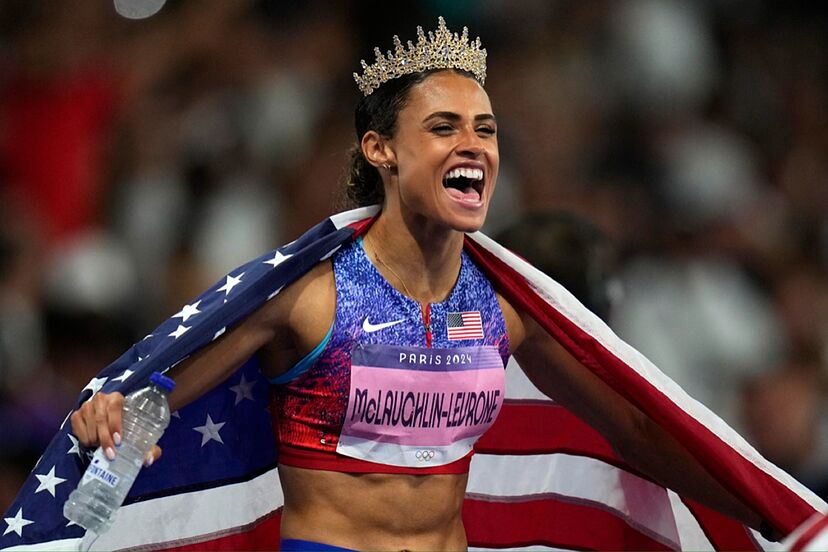Track Queen Sydney McLaughlin-Levrone Claims…read more.
On a warm evening at Hayward Field, where the air buzzed with anticipation and the crowd roared like a living thing, Sydney McLaughlin-Levrone stood alone in her lane calm, focused, and quietly defiant. Known to most as the unshakable queen of the 400m hurdles, the 24-year-old Olympic gold medalist was about to run a race without a single barrier in her way. But if the world thought removing the hurdles might dull her shine, they were about to be proven very wrong.
With a graceful launch from the blocks and a stride that seemed to float rather than pound the track, McLaughlin-Levrone ran a masterclass of power and poise to win the women’s 400m final at the U.S. Olympic Trials. Her time 48.82 seconds wasn’t just good. It was the fastest in the world this year. And as she crossed the finish line, a wave of emotion swept across her face. She had done it. Again. But differently.
“I can’t lie I’m kind of speechless,” she said afterward, eyes sparkling, voice still breathless. “This wasn’t supposed to be my year in the 400 flat. But here we are. I just trusted the process and let God guide me.”
The journey to this moment was anything but straightforward. After dealing with a knee injury earlier in the season, McLaughlin-Levrone and her coach, Bobby Kersee, made a bold decision one that surprised fans and even some fellow athletes. They would step away from the 400m hurdles, the event where she had shattered world records and left competitors trailing, and try something new.
“We had to listen to her body first,” Kersee explained. “But Sydney doesn’t just train she studies. She didn’t just ‘switch’ to the flat 400. She learned it, lived it, and now owns it.”
And own it she did. The final was no easy cruise. Talitha Diggs and Lynna Irby-Jackson, both seasoned and hungry, gave chase down the backstretch. But as the curve straightened and the homestretch came into view, it was McLaughlin-Levrone’s signature stride tall, fluid, almost musical that separated her from the rest.
The crowd at Hayward Field, a sea of red, white, and blue, erupted as she powered through the line. There was no chest-thump, no over-the-top celebration just a soft smile, a deep breath, and a subtle glance upward, as if to quietly acknowledge that she’d just surprised even herself.
“That race… I just ran from the heart,” she said. “This whole season has been a lesson in patience, trust, and surrender. And I’m grateful.”
The win opens up intriguing possibilities. With her spot in the 400m for Paris now secured, the question on everyone’s lips is: Will she still attempt the 400m hurdles? Doubling at the Olympics is notoriously difficult, both physically and mentally. But if anyone has the capacity and the calm to do it, it’s Sydney.
“She’s not just an athlete,” said Allyson Felix, watching from the stands. “She’s an artist on the track. Whether it’s hurdles or not, what Sydney does is pure poetry.”
Her win has already lit up social media, with athletes, fans, and even celebrities posting tributes to her performance. For many, McLaughlin-Levrone represents a rare combination of talent, humility, and grace a grounded superstar in an age of noise.
But for Sydney herself, the spotlight isn’t the goal.
“It’s not about fame or headlines,” she said softly. “It’s about using this platform to glorify God, to inspire little girls who might be watching, and to grow even when it’s uncomfortable.”
That vulnerability that willingness to embrace uncertainty may be her most powerful asset. Because in a sport where milliseconds matter and injuries can derail seasons, Sydney McLaughlin-Levrone isn’t just running for medals. She’s running for meaning.
And whether she lines up in one event or two in Paris, one thing is certain: she’ll show up with that same quiet fire the kind that turns doubts into dominance.
No hurdles. No excuses. Just Sydney.



